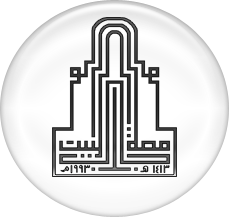| DC Field | Value | Language |
|---|
| dc.contributor.author | بسام علي سلامة العموش | - |
| dc.date.accessioned | 2017-12-07T15:17:25Z | - |
| dc.date.available | 2017-12-07T15:17:25Z | - |
| dc.date.issued | 2017-04-04 | - |
| dc.identifier.uri | http://hdl.handle.net/123456789/1329 | - |
| dc.description.abstract | ملخص
كان ربط الأحكام بالمقاصد الشرعية الدافع الأول للشاطبي ليدون كتابه "الموافقات" حيث إن المقاصد هي المعالم الكبرى والمهارات العلا التي توجه الفقهاء حتى لا تضل بهم الطريق وهم يستنبطون في الأحكام، ومدرسة المقاصد تقابل مدرسة الرازي الذي يؤكد أن أحكام الله ليست معللة بعلة البتة. وإذا كان هذا فيما يتعلق بالفقه فهو من باب أولى في العقيدة إذ لا يعقل توجيه الفقهاء دون علماء التوحيد حيث إن موضوع الحرية يرتبط بالعقيدة بالدرجة الأولى انطلاقاً من قوله تعالى: "لا إكراه في الدين"!! وإن هذا البحث هو محاولة لربط موضوع الحرية بالمقاصد القرآنية تحديداً. ولقد أكد الباحث أن الإنسان مكرم ومختار ولا مجال لإجباره على أي دين، بل هو مختار كما دلت على ذلك آيات قرآنية كثيرة مما استدعى توجيه الحديث الوارد في قتل المرتد وحديث مقاتلة الناس حتى يقولوا لا إله إلا الله. إذْ لا يمكن أن نقدم عند التعارض الظاهري حديثاً على آية.
الكلمات المفتاحية: الحرية، المقاصد، الحكم.
Abstract
The main motive behind the writing of Al-Shattbi's book " Al-Mowafqat" is to show the relation between the Juridical judgements and the aims of Sharia. In fact, the aims of Sharia are the greatest paths which guide scholars in order not to be misled while inferring judgements. The school of the aims of shari’ah is opposite to that of al-Razi which adopts the view that AllAh’s laws should not be justified or have reasons. This is not only regarded as part of Jurisprudence, but it is essential to the Islamic creed; scholars can't be guided without taking the role theologians play into consideration. The issue of freedom is firstly related to creed, this is based on the verse “there should be no compulsion in religion”. This research is intended to establish a link between 'freedom' and the aims of Sharia, especially those implied in the Holy Quran. More importantly, the researcher has come up with an important result with which many people would not agree. He maintains that man is honored by Allah and is free to choose his/her religion, and that no religion can be imposed upon him/her as many Quranic verses imply.
This is because we cannot give preference in apparent conflict to a Hadith over a Qur’anic verse. | en_US |
| dc.subject | الكلمات المفتاحية: الحرية، المقاصد، الحكم. | en_US |
| dc.title | الحرية في المقاصد القرآنية | en_US |
| dc.type | Other | en_US |
| Appears in Collections: | المجلد 13، ع3 لسنة 2017
|

